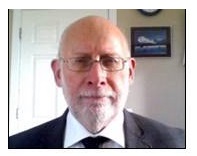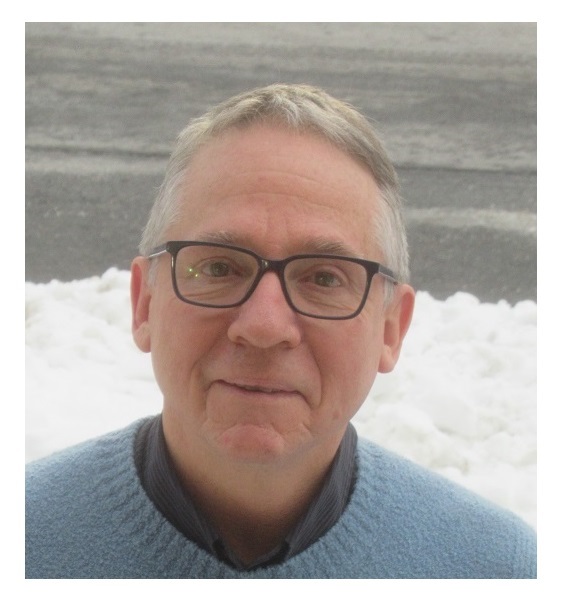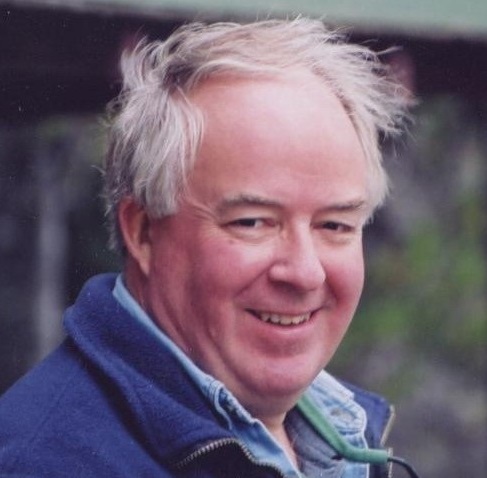
Last week's webinar HERE "Is Learning Being Lost As Education's Grand Purpose?" featured Barry Cooper interviewed by the webinar's host Perry Kinkaide covering a wide-ranging discussion of leadership and confusion among the various competing interests: education, research, and the credentialing of the professions. Core to the discussion was the primary role of the university to educate students to think, learn and explore, with secondary interests to serve society's more productive and economic interests. Barry is a strong proponent of universities serving their mission best by promoting and defending wide freedom of expression on campus, maintaining that the vile things said on campus should not lead us to limit expression or to waiver in our commitment to learning in the pursuit of knowledge, tolerance, and understanding.
Education at a Crossroads: Navigating Challenges and Change
When we launched the series 'Is Education Failing - Our Kids and Our Future?', there was an underlying sense of urgency at both the K-12 level—with issues like student underachievement and teacher burnout—and in higher education, marked by protests of social injustice and even violence. Was something fundamental amiss in the education system? This series, an extension of previous explorations into healthcare and social services - homelessness, aimed to explore whether the upheavals were a harbinger of peril or a gateway to transformative change, and—what was needed?
The impact of technology emerged as significant citing in particular artificial intelligence. AI was viewed as both a tool for knowing but a threat to learning. Richard Sutton, founder of reinforcement learning and contributor to the rapid advancement of AI, recognized that immediate access to knowledge could be an impediment to learning or an aide. Some wanted to ban AI from the classroom others to embrace it. Could it help personalize education—complementing on-line learning, e-Books and the cell-phone? Or was it a threat to privacy and even more, a threat to human autonomy? Would AI evolve as a source of misinformation without a moral compass? These and other concerns were echoed by presenters and viewers alike, yet AI continues to evolve with no slowdown in sight.
Delving deeper, the series uncovered a core issue: confusion about the very purpose of education at all levels. Was the role of education primarily about learning and teaching, research and problem-solving, fostering critical thought or civil indoctrination? Is its mission to cultivate individual growth or serve broader societal needs? The emerging consensus suggested that education's challenge is multifaceted, encompassing all these elements, on a continuum of learning to knowing.
Time and again, the series highlighted leadership as a pivotal challenge—navigating competing interests and charting a new course in times of existential crisis. Whether the upheaval is transformative or simply an awakening, for education to contribute to sustainable personal growth and societal progress requires a constructive dialogue, tolerance, and innovation. The objective of the concluding webinar this week - see below, is to explore these options. - Editor, KEInetwork.net
WEBINAR
EDUCATION - Failing our kids and our future. What's needed?
4:00PM MST Thursday, November 30th, 2023
HERE https://us02web.zoom.us/j/82390691947
Calendarize the Webinar HERE for Outlook
Panel Chair
 John Burger completed his B.A. and B.Ed. at the Oho State University and his M. Ed. and Ph.D. at the University of Alberta. John has worked as an assistant principal, principal, associate superintendent and Research Director in several Alberta school systems as well as 23 years in the Alberta Ministry of Education. He is also an Adjunct Assoc. Professor at the University of Calgary and former Adjunct Assoc. Professor at the University of Alberta. With 40+ years of experience in education John recently has focused on launching his company Practical Data Solutions, Inc. (www.practicaldatasolutions.ca) with a primary objective of advancing research on factors that affect student engagement with school as well as measuring individual student engagement with the Student Orientation to School Questionnaire that he and his partner developed.
John Burger completed his B.A. and B.Ed. at the Oho State University and his M. Ed. and Ph.D. at the University of Alberta. John has worked as an assistant principal, principal, associate superintendent and Research Director in several Alberta school systems as well as 23 years in the Alberta Ministry of Education. He is also an Adjunct Assoc. Professor at the University of Calgary and former Adjunct Assoc. Professor at the University of Alberta. With 40+ years of experience in education John recently has focused on launching his company Practical Data Solutions, Inc. (www.practicaldatasolutions.ca) with a primary objective of advancing research on factors that affect student engagement with school as well as measuring individual student engagement with the Student Orientation to School Questionnaire that he and his partner developed.
Panel
 Mark Mercer is a professor of philosophy at Saint Mary's University in Halifax, Nova Scotia, Canada. He is known for his research and teaching in the areas of ethics, philosophy of mind and theory of knowledge. He is a committed civil libertarian and a champion of liberal education and academic freedom. Dr. Mercer is Past President and a member of the Board of Directors for the Society for Academic Freedom and Scholarship (SAFS) - a national group of academics and others who support academic freedom and the merit principle in higher education. A collection of his articles, In Praise of Dangerous Universities and Other Essays, was published last summer. FOR MORE
Mark Mercer is a professor of philosophy at Saint Mary's University in Halifax, Nova Scotia, Canada. He is known for his research and teaching in the areas of ethics, philosophy of mind and theory of knowledge. He is a committed civil libertarian and a champion of liberal education and academic freedom. Dr. Mercer is Past President and a member of the Board of Directors for the Society for Academic Freedom and Scholarship (SAFS) - a national group of academics and others who support academic freedom and the merit principle in higher education. A collection of his articles, In Praise of Dangerous Universities and Other Essays, was published last summer. FOR MORE
 William Brooks is currently an opinion columnist for The Epoch Times and a Senior Fellow at the Frontier Centre for Public Policy. Bill earned an Honours BA in History at Loyola College, University of Montreal, as well as a B.Ed and M.Ed in the Teaching of History from McGill University. He taught in Quebec public high schools before joining Lower Canada College where he spent 25 years teaching history, economics and political science. At LCC, he was Head of the Social Sciences Department and Director of the school’s Pre-university Program. In civic life, Bill served for eight years as an elected public school commissioner on Montreal’s West Island and as an active member of the Board of Governor’s for the former Quebec Association of Protestant School Boards. In the 1980s and 90s, he co-founded the St. Lawrence Institute for the Advancement of Learning. He worked closely with the Freedoms Foundation at Valley Forge, Pennsylvania and members of the Committee for the Free World in New York City to develop leadership programs for students in free societies. In 2000, he co-founded the Center for the Advancement of Schools (CAS), a Montreal based consulting group specialising in educational policy assessment and the development of school success plans for the Province of Quebec. He later became Headmaster of the Junior School at Kuper Academy in Pointe Claire, Quebec and moved to Nova Scotia in 2007 to serve as Director of Advancement for the Sacred Heart School of Halifax.
William Brooks is currently an opinion columnist for The Epoch Times and a Senior Fellow at the Frontier Centre for Public Policy. Bill earned an Honours BA in History at Loyola College, University of Montreal, as well as a B.Ed and M.Ed in the Teaching of History from McGill University. He taught in Quebec public high schools before joining Lower Canada College where he spent 25 years teaching history, economics and political science. At LCC, he was Head of the Social Sciences Department and Director of the school’s Pre-university Program. In civic life, Bill served for eight years as an elected public school commissioner on Montreal’s West Island and as an active member of the Board of Governor’s for the former Quebec Association of Protestant School Boards. In the 1980s and 90s, he co-founded the St. Lawrence Institute for the Advancement of Learning. He worked closely with the Freedoms Foundation at Valley Forge, Pennsylvania and members of the Committee for the Free World in New York City to develop leadership programs for students in free societies. In 2000, he co-founded the Center for the Advancement of Schools (CAS), a Montreal based consulting group specialising in educational policy assessment and the development of school success plans for the Province of Quebec. He later became Headmaster of the Junior School at Kuper Academy in Pointe Claire, Quebec and moved to Nova Scotia in 2007 to serve as Director of Advancement for the Sacred Heart School of Halifax.
Bill is a former President of the Quebec Association of Teachers of History. His essays on cultural developments and the teaching of history can be found in publications like: The Epoch Times, The Montreal Gazette, The Ottawa Citizen, The Calgary Herald, Le Monde of Paris, Teaching History (UK) and The McGill Journal of Education. His early work is archived at http://discourseonline.ca
 Barry Cooper a fourth generation Albertan, was educated at Shawnigan Lake School, the University of British Columbia, and Duke University. He taught at universities in Laurentian Canada before coming to the University of Calgary in 1981. He has translated, edited, or written over 35 books, most recently (with Marco Navarro-Génie), Canada’s COVID: The Story of a Pandemic Moral Panic. He has written extensively on Canadian politics, and the political philosophy of Eric Voegelin. In 2004, he published New Political Religions: An Analysis of Modern Terrorism, a copy of which was recovered from the personal library of the late Osama bin Laden when his compound in Abbottabad was visited by members of Seal Team Six. In 2020 he published Paleolithic Politics: The Human Community in Early Art and is currently working on a book on Neolithic political symbols.
Barry Cooper a fourth generation Albertan, was educated at Shawnigan Lake School, the University of British Columbia, and Duke University. He taught at universities in Laurentian Canada before coming to the University of Calgary in 1981. He has translated, edited, or written over 35 books, most recently (with Marco Navarro-Génie), Canada’s COVID: The Story of a Pandemic Moral Panic. He has written extensively on Canadian politics, and the political philosophy of Eric Voegelin. In 2004, he published New Political Religions: An Analysis of Modern Terrorism, a copy of which was recovered from the personal library of the late Osama bin Laden when his compound in Abbottabad was visited by members of Seal Team Six. In 2020 he published Paleolithic Politics: The Human Community in Early Art and is currently working on a book on Neolithic political symbols.
Barry has lectured in Europe, the United States, India, Australia, New Zealand, and China. He has received numerous on-going research grants from North American and European granting agencies, including two major awards, the Konrad Adenauer Award from the Alexander von Humboldt-Stiftung, and a Killam Research Fellowship. He was elected a Fellow of the Royal Society of Canada in 1993.